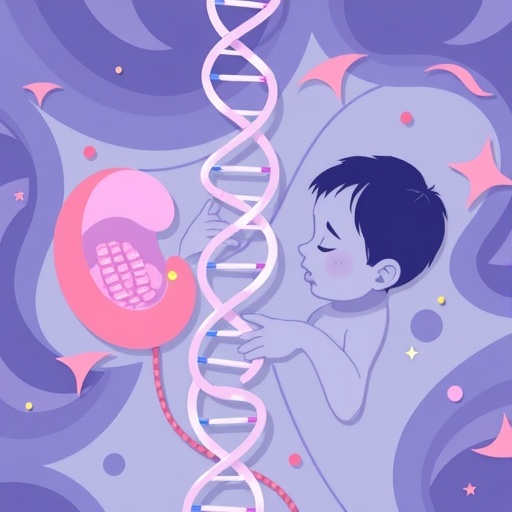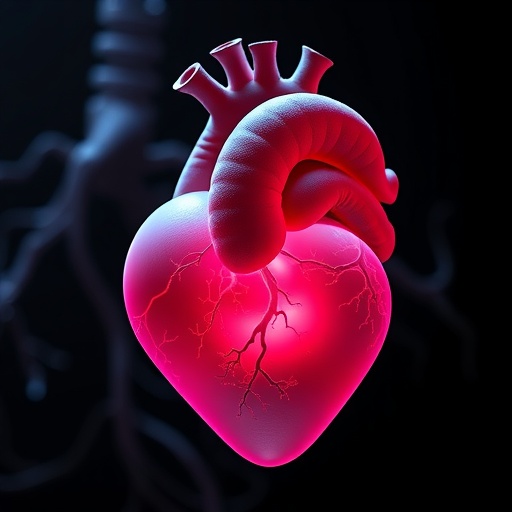PROTECT YOUR DNA WITH QUANTUM TECHNOLOGY
Orgo-Life the new way to the future Advertising by AdpathwayRecent research has shed light on the intricate relationship between personality traits and eating disorders, revealing critical insights that could pave the way for more effective treatment modalities. The groundbreaking study led by Gilmartin, Gurvich, and Sharp, published in the Journal of Eating Disorders, employs the DSM-5 alternative model of personality disorder traits to categorize personality types among individuals seeking treatment for eating disorders. This novel approach is seen as a significant advancement in the understanding of how personality influences the development and maintenance of these complex disorders.
The study, characterized as a pilot project, aims to uncover various personality configurations within a population that is often characterized by diverse and multifaceted psychological profiles. Given the increasing prevalence of eating disorders, which have devastating effects on physical and emotional well-being, understanding the underlying personality traits is crucial. This research not only provides empirical support for the application of the DSM-5 model in this context but also opens the door for tailored therapies that could enhance treatment outcomes.
Utilizing the DSM-5 alternative model, the researchers categorized personality traits into specific domains, enabling them to profile individuals more accurately. By employing a quantitative approach, the study investigated how these traits correlate with the severity of eating disorder symptoms. This represents a methodological innovation, as previous research often relied on more general psychological assessments that may not capture the nuanced relationship between personality and disordered eating behaviors.
The implications of this study are profound. By identifying distinct personality types among individuals seeking eating disorder treatment, clinicians can better understand their patients’ motivations, fears, and behaviors. This information is critical in developing personalized treatment plans that address not only the eating disorder symptoms but also the underlying personality factors contributing to these issues. It could facilitate more effective interventions that resonate on a deeper psychological level.
Moreover, the findings suggest that personality assessments could become routine in the initial stages of treatment for eating disorders. This integration of personality profiling could help identify high-risk individuals and create early intervention strategies that address both personality traits and eating behaviors concurrently. The nuanced understanding of personality types could lead to a shift in how clinicians approach treatment, transitioning from a one-size-fits-all method to a more individualized model that respects the complexities of each patient’s psychological makeup.
In conducting their research, Gilmartin and colleagues utilized a diverse sample of participants, reflecting a wide range of eating disorder diagnoses and severities. This diversity adds robustness to the findings, allowing for a more comprehensive understanding of how various personality traits manifest across different types of eating disorders. Each participant underwent a thorough assessment, including structured interviews and standardized questionnaires that focused on personality traits as outlined by the DSM-5.
The results from this pilot study are promising, as they indicate a significant correlation between certain personality traits and the severity of eating disorder symptoms. For instance, traits such as emotional instability and avoidance were strongly linked to more severe eating disorders. Understanding these relationships can provide clinicians with the tools to better predict treatment outcomes and tailor their therapeutic approaches.
Furthermore, this study places significant emphasis on the potential for future research to expand upon these findings. The pilot nature of the study implies that there are numerous avenues for exploring the interplay between personality and eating disorders further. Larger-scale studies could validate these preliminary findings and refine the classification system used for personality traits within this specific population.
As the realm of mental health continues to evolve, the integration of personality assessments into treatment for eating disorders could represent a paradigm shift. Not only does this research contribute to the academic literature, but it also holds the promise of bringing about meaningful changes in clinical practice. By understanding and recognizing the role personality plays in eating disorders, practitioners may be better equipped to support their patients on their journey to recovery.
In conclusion, Gilmartin, Gurvich, and Sharp’s study is a pivotal step toward understanding the complex relationship between personality and eating disorders. By utilizing the DSM-5 alternative model, this research paves the way for more effective and personalized treatment approaches. As the study highlights the pressing need for continued exploration in this field, it serves as a reminder of the intricate tapestry of factors that contribute to eating disorders and the importance of addressing them comprehensively.
This research not only advances the field of psychology but also encapsulates a compassionate approach to treating individuals battling eating disorders. The insights gleaned from this study could inspire future directives in both clinical settings and research domains, promoting greater awareness and understanding of personality in the context of mental health.
In a world where eating disorders are increasingly prevalent, the insights provided by this research could foster a deeper dialogue surrounding treatment methodologies. It reinforces the necessity of viewing individuals holistically, recognizing that their personality traits significantly influence their relationship with food, body image, and ultimately, their overall mental health.
The potential adoption of these findings into everyday clinical practice could significantly enhance the lives of those struggling with eating disorders. By addressing both the symptoms and the underlying personality factors, clinicians could help their patients forge healthier relationships with themselves and their bodies. This study reflects a hopeful outlook for the future of eating disorder treatment, bridging the gap between personality psychology and clinical practice.
In summary, the research conducted by Gilmartin, Gurvich, and Sharp provides an essential foundation for understanding the nuances of personality in the context of eating disorders. It represents a crucial step in developing more effective treatment strategies that cater to the individual needs of patients. The ongoing exploration of this relationship is vital in the pursuit of better mental health outcomes for those affected by these challenging conditions.
By continuing to investigate the links between personality traits and eating disorders, future research will undoubtedly unveil even more intricate details that can enhance our understanding and treatment of these complex disorders. The future of eating disorder treatment lies in the tailored application of personality research, offering hope and healing to countless individuals in need.
Subject of Research: Personality Types in Relation to Eating Disorders
Article Title: Using a measure of the DSM-5 alternative model of personality disorder traits to define personality types in people seeking eating disorder treatment: a pilot study.
Article References:
Gilmartin, T., Gurvich, C. & Sharp, G. Using a measure of the DSM-5 alternative model of personality disorder traits to define personality types in people seeking eating disorder treatment: a pilot study.
J Eat Disord 13, 227 (2025). https://doi.org/10.1186/s40337-025-01413-9
Image Credits: AI Generated
DOI: 10.1186/s40337-025-01413-9
Keywords: Eating Disorders, Personality Traits, DSM-5, Treatment, Pilot Study, Mental Health, Psychological Profiling
Tags: DSM-5 alternative model in eating disorderseffective treatment modalities for eating disordersempirical research on eating disordersGilmartin Gurvich and Sharp studypersonality configurations in eating disorderspersonality traits and eating disordersprevalence of eating disorderspsychological profiles in eating disorder treatmentquantitative approach in eating disorder researchrelationship between personality and eating disorderstailored therapies for eating disordersunderstanding personality in eating disorders


 11 hours ago
19
11 hours ago
19





















 English (US) ·
English (US) ·  French (CA) ·
French (CA) ·